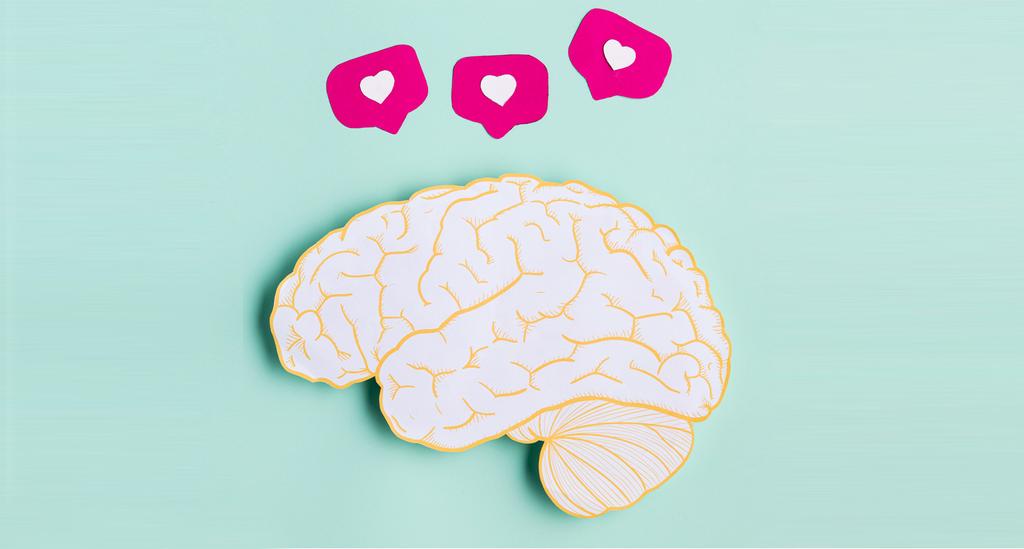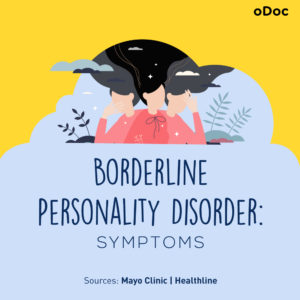
How to Keep Work Stress from Taking Over Your Life
How to Keep Work Stress from Taking Over Your Life In today’s fast-paced and competitive world, work stress has become an all-too-common problem that affects

When it comes to taking care of yourself, people often speak about daily skincare, weekly hair care or annual health checks. But what about the brain? When moods falter, depression strikes or worry intensifies, people are often asked to snap out of it. Increased research into mental health says otherwise.
For our brains to be healthy, we need to take as much care over them as we do over other parts of our bodies. A healthy brain is something we should all care about – it impacts your daily activities, your attitudes, your moods, your creativity, your relationships – need we go on? Here we give you 5 hacks to incorporate into your daily routine to achieve optimal neural health.

1. Your food intake
What you eat plays a big role in the state of your mental health. The modern diet, filled with sugars and unhealthy fats, don’t provide the adequate resources a healthy brain needs to perform at its best. The results can often be anything from sluggishness, inability to focus or even depression.
This includes taking an omega 3 supplement or incorporating oily fish into your diet, eating leafy greens, having lots of berries and nuts, switching out the white flour or rice for whole grains and reducing your consumption of processed foods.

2. Your water intake
Your brain needs a lot of water. If you’re feeling thirsty and your lips are dry, it means your brain is not able to optimally focus or concentrate. Aim to drink 2 litres of water a day. Keep a large bottle of water at your desk and drink through the day. A glass of water on your bedside table to drink first thing in the morning will help you start the day on the correct foot!

2. Your water intake
Your brain needs a lot of water. If you’re feeling thirsty and your lips are dry, it means your brain is not able to optimally focus or concentrate. Aim to drink 2 litres of water a day. Keep a large bottle of water at your desk and drink through the day. A glass of water on your bedside table to drink first thing in the morning will help you start the day on the correct foot!


3. Your exercise
Ever pushed back your workout till the next day because you’re too tired to move? We’ve all been there. Your brain cares about your movement so instead of waiting till you have one hour of energy to get that workout done, incorporate small bursts of movement to your day. A ten minute walk around your house or a quick set of jumping jacks by your desk (hey #wfh benefits!) is much easier to wrap your head around. And if you can spend half an hour or an hour exercising? Please do!
3. Your exercise
Ever pushed back your workout till the next day because you’re too tired to move? We’ve all been there. Your brain cares about your movement so instead of waiting till you have one hour of energy to get that workout done, incorporate small bursts of movement to your day. A ten minute walk around your house or a quick set of jumping jacks by your desk (hey #wfh benefits!) is much easier to wrap your head around. And if you can spend half an hour or an hour exercising? Please do!

4. Your breath
Your breath is an important part of your stress management, or lack thereof. When we are stressed we tend to hold our breath or take shallow quick inhales (or vice versa). This unconscious act keeps our brains forever on edge for the next “crisis”. Being mindful of how you breath can play an important role in calming your body and allowing your brain to rest and relax. Taking long, deep inhales and even longer exhales activates the parasympathetic nervous system that helps calm the brain. Try to practice the 5-5-5 breathing technique (inhale for 5 counts, hold for 5 counts, exhale for 5 counts) for 10 minutes at least once a day.

4. Your breath
Your breath is an important part of your stress management, or lack thereof. When we are stressed we tend to hold our breath or take shallow quick inhales (or vice versa). This unconscious act keeps our brains forever on edge for the next “crisis”. Being mindful of how you breath can play an important role in calming your body and allowing your brain to rest and relax. Taking long, deep inhales and even longer exhales activates the parasympathetic nervous system that helps calm the brain. Try to practice the 5-5-5 breathing technique (inhale for 5 counts, hold for 5 counts, exhale for 5 counts) for 10 minutes at least once a day.


5. Your screen time
2020 saw a substantial increase in the number of hours spent on devices. All the ways we use our devices – be it for apps, social media, messages or health tracking – has an impact on our brains. We become addicted to apps that provide us with a feel good hormone hit every time the notifications chime. In a stressed out, uncertain world, it has the potential to become an unhealthy emotional crutch. To break out of the cycle, schedule in no-screen time to your day, delete social media apps off your phone for a period of time, go analog (no digital devices) for 24 hour periods once a month, add a screen time widget to make you aware of how often you use your phone (and on what!).
5. Your screen time
2020 saw a substantial increase in the number of hours spent on devices. All the ways we use our devices – be it for apps, social media, messages or health tracking – has an impact on our brains. We become addicted to apps that provide us with a feel good hormone hit every time the notifications chime. In a stressed out, uncertain world, it has the potential to become an unhealthy emotional crutch. To break out of the cycle, schedule in no-screen time to your day, delete social media apps off your phone for a period of time, go analog (no digital devices) for 24 hour periods once a month, add a screen time widget to make you aware of how often you use your phone (and on what!).


How to Keep Work Stress from Taking Over Your Life In today’s fast-paced and competitive world, work stress has become an all-too-common problem that affects

Hypertension: Everything You Need to Know Hypertension, commonly known as high blood pressure, is a chronic medical condition that affects a significant portion of the

Understanding Borderline Personality Disorder: Symptoms, Causes, and Treatment. Borderline Personality Disorder (BPD) is a mental health disorder characterised by instability in mood, behaviour, and relationships.
Get the latest health tips delivered straight to your inbox!